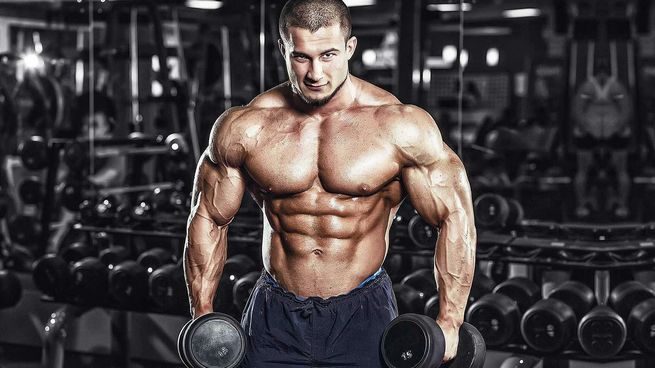In the pursuit of fitness, many individuals focus on training routines and diets while overlooking the crucial role of vitamins and minerals. These micronutrients are essential for overall health and well-being, and their appropriate dosage can significantly impact performance and recovery. This article delves into the importance of vitamins and minerals in fitness, recommended dosages, and how to incorporate them effectively into your routine.
The Importance of Vitamins and Minerals in Fitness
Vitamins and minerals are integral to numerous physiological processes, including:
– **Energy Production**: B-vitamins, including B1 (thiamine), B2 (riboflavin), B3 (niacin), B5 (pantothenic acid), B6 (pyridoxine), B7 (biotin), B9 (folic acid), and B12 (cobalamin) are essential for converting food into energy.
– **Muscle Function**: Calcium, magnesium, and potassium are vital for muscle contraction and relaxation. An imbalance in these minerals can lead to cramps or fatigue during workouts.
– **Recovery**: Antioxidants like vitamin C and vitamin E help combat oxidative stress from intense exercise, facilitating quicker recovery and reducing inflammation.
Understanding the specific roles of each vitamin and mineral is crucial for determining the right dosage to enhance fitness levels.
Recommended Daily Allowances (RDA)
While individual needs may vary based on factors such as age, sex, activity level, and health status, the following recommended daily allowances serve as a guideline for general populations:
– **Vitamin A**: 900 mcg (men), 700 mcg (women)
– **Vitamin C**: 90 mg (men), 75 mg (women)
– **Vitamin D**: 600 IU (15 mcg)
– **Vitamin E**: 15 mg
– **Vitamin K**: 120 mcg (men), 90 mcg (women)
– **B-Vitamins**:
– B1: 1.2 mg (men), 1.1 mg (women)
– B2: 1.3 mg (men), 1.1 mg (women)
– B3: 16 mg (men), 14 mg (women)
– B6: 1.3 mg (adults)
– B12: 2.4 mcg
– **Minerals**:
– Calcium: 1000 mg (adults)
– Magnesium: 400-420 mg (men), 310-320 mg (women)
– Potassium: 3400 mg (men), 2600 mg (women)
– Iron: 8 mg (men), 18 mg (women)
These values are typically sufficient to meet the nutritional needs of most healthy individuals. However, athletes or those with increased physical demands may require higher doses.
Factors Influencing Dosage
When determining the appropriate dosage of vitamins and minerals, consider the following factors:
1. **Activity Level**: Active individuals often require more nutrients to support energy expenditure and muscle recovery.
2. **Dietary Habits**: A balanced diet rich in fruits, vegetables, whole grains, lean proteins, and healthy fats usually provides adequate vitamins and minerals. Those following restrictive diets might need supplementation.
3. **Health Conditions**: Specific medical conditions or medications can affect nutrient absorption and metabolism, resulting in increased requirements.
4. **Age and Gender**: Nutrient needs may vary by age group and gender due to hormonal changes and growth stages.
Sources of Vitamins and Minerals
Obtaining vitamins and minerals through whole foods should be the primary goal, as they offer a range of other beneficial compounds. Here are some excellent sources:
– **Fruits and Vegetables**: Rich in vitamins A, C, and K, as well as antioxidants.
– **Whole Grains**: Great sources of B-vitamins and minerals such as iron and magnesium.
– **Nuts and Seeds**: High in vitamin E, magnesium, and healthy fats.
– **Dairy Products**: Excellent sources of calcium and vitamin D.
– **Lean Meats and Fish**: Provide B-vitamins and essential minerals like iron and zinc.
Supplementation Considerations
If dietary intake falls short or specific fitness goals necessitate additional support, supplementation may be beneficial. When considering supplements:
– **Choose Quality Products**: Look for reputable brands that undergo third-party testing for purity and potency.
– **Start with Low Doses**: Begin with recommended dosages and observe how your body responds before increasing amounts.
– **Consult a Healthcare Professional**: Individual needs can vary greatly; a healthcare provider can offer personalized advice based on your lifestyle and health status.
When it comes to optimizing your fitness routine, understanding the correct dosage of vitamins and minerals is crucial. These nutrients play a vital role in energy production, muscle function, and recovery. For those looking to enhance their performance and overall health, it’s important to choose the right supplements tailored to your specific needs. To explore a wide range of options, you can visit https://anabolhardcoreusa.com/product-category/sport-nutrition/fitness-vitamins-and-minerals/ for more information on fitness vitamins and minerals.

Conclusion
Understanding the role of vitamins and minerals is fundamental in achieving optimal fitness results. Proper dosing is essential for maximizing performance, promoting recovery, and maintaining overall health. By prioritizing nutrient-dense foods and considering supplementation when necessary, individuals can effectively support their fitness goals. Remember to consult professionals and adjust your intake based on personal needs, lifestyle, and fitness aspirations..
